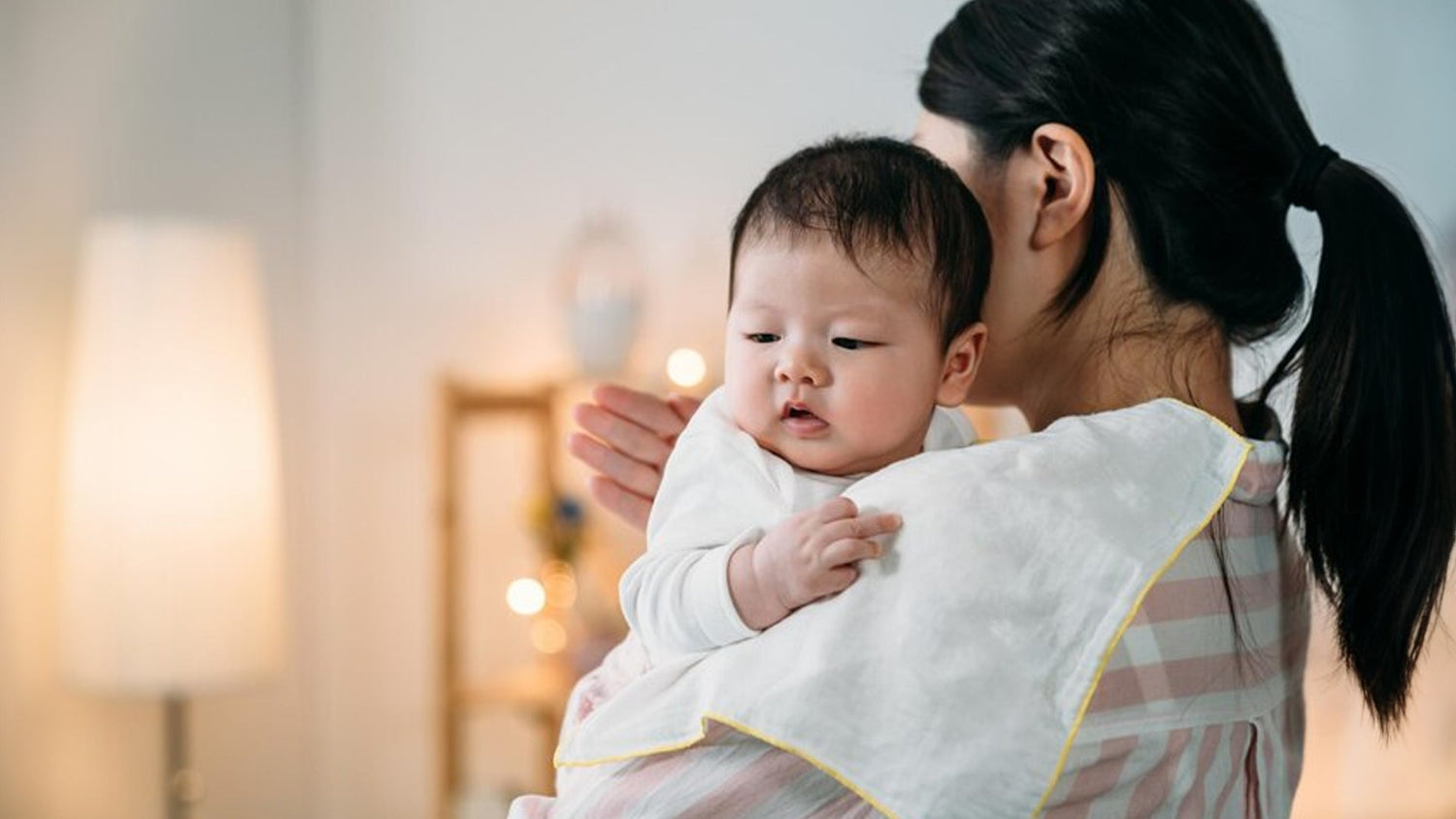
The Complete Guide to Choosing the Right Sunscreen for Kids


Homemade Baby Food: 2 Simple Recipes for Healthy Meals

Purees vs. Finger Foods: Which Is Best for Your Baby?

The Ultimate Baby Feeding Checklist: From Newborns to Tod...

How to Create the Perfect Feeding Schedule for Your Newborn

The Benefits Of Baby Feeding Bottle: A Parent’s Guide

A Beginner's Guide to Baby-Led Weaning

Comprehensive Baby Feeding Chart: Ages 0-12 Months

How to Safely Heat Milk for Your Baby: Tips and Techniques

Feeding Your Infant: Common Challenges and How to Overcom...

Nervous About weaning Your Baby? Here Is What You Need To...

Nourishing the New Mother: Ayurvedic Postnatal Care Pract...

Benefits of Anti-Colic Feeding Bottles

5 Cute Must-Have Summer Dresses for Baby Girl

How to clean/wash baby feeding bottle?

A Parent's Guide to Organic Baby Clothes: What You Need t...

9 Easy Tips to Encourage Self-Feeding for Babies

What Causes Colic? A Simple Guide for Parents

07 Winter Tips for Your Baby's Delicate Skin

All You Need To Know About Breastfeeding

5 Winter Foods That You Should Include In Your Lil One's ...

10 Essential Ayurvedic Products For Babies

Is Formula Feeding Safe for Your Little One?

How to Prepare for Baby's First Cold and Flu Season: A Co...

How to Avoid Nipple Confusion While Breastfeeding and Bot...

Comprehensive Baby Feeding Chart for 2-Year-Olds

The Complete Guide to Choosing the Right Sunscreen for Kids

Why Floor Cleaners Are Important for Homes with Babies

The Right Way to Use Baby Lotion for Keeping Baby Skin Soft for Longer

How the Swaddle Set Makes for a Thoughtful Baby Shower Gift

A Fun Guide to the Chinese Gender Prediction Chart for Expecting Moms
Burping a baby is one of those parenting skills that might seem simple, but it holds immense importance in your little one's early months. It's not just about helping your baby stay comfortable; burping plays a crucial role in your infant's digestive health and overall well-being. In this blog, we'll explore why burping is necessary, how to burp your baby effectively, and some tips to make it easier for both you and your baby.
During feeding, babies often swallow air, especially when they feed vigorously or if they are bottle-fed. This air can get trapped in their stomachs, causing discomfort, bloating, and fussiness. Burping helps to release this air, making your baby feel more comfortable.
Trapped air can lead to spit-ups or even vomiting if not expelled. Regular burping helps minimize these occurrences by releasing the air that pushes milk and stomach contents back to the oesophagus.
When babies swallow air, they might feel falsely full, leading them to eat less than they need. Burping can make room in their stomachs for the right amount of milk, ensuring they get the nutrition they require.
Most parents find it helpful to burp their babies during and after each feeding. If you're breastfeeding, try burping when switching breasts. If you're bottle-feeding, every 2-3 ounces is a good interval. However, if your baby is particularly gassy or prone to spit-ups, more frequent burping might be necessary.
There are several ways to burp your baby, and different methods may work better at different times or for different babies. Here are the most popular ones:
Hold your baby against your chest so their chin is resting over your shoulder. Support their bottom with one hand and gently pat or rub their back with the other hand. This position is helpful because it uses gravity to aid the escape of trapped air.
Place your baby on your lap facing away from you. Use one hand to support their body by holding their chest and chin (make sure not to squeeze their throat). Lean them slightly forward and pat or rub their back with your other hand.
Lay your baby face down on your lap, turned slightly to one side to ensure their airway is open. Support their chin and jaw with one hand (again, not putting pressure on the throat). Gently pat or rub their back with your other hand.
Sometimes, it may take a few minutes for the air to come up. Be patient and keep gently patting or rubbing your baby's back. The key is gentle pressure; too much force is not necessary and can be uncomfortable to your baby.
Not all babies need to burp after every feeding. If your baby doesn't burp after a few minutes but seems comfortable and happy, it's okay to put them down. However, if they seem uncomfortable or fussy, continue trying or try again after a short break.
Even with effective burping, some babies might still spit up. This is usually normal. Keep a burp cloth handy during and after feedings to protect your clothes and clean up any mess. If spit-ups seem excessive or your baby appears to be in discomfort, consult your paediatrician to rule out any underlying issues.
Burping is a simple yet essential part of baby care that helps keep your little one comfortable and happy. While it may seem tedious at times, especially during night feedings, remember that it's helping your baby digest their food properly and stay healthy. With practice, patience, and persistence, you'll soon find what works best for burping your baby, making feeding times smoother and more enjoyable for both of you.

